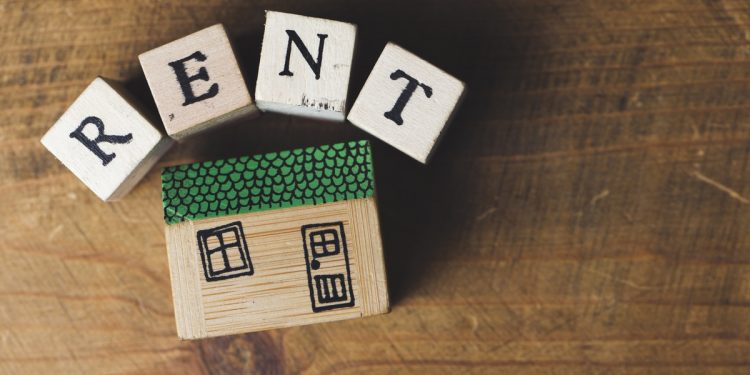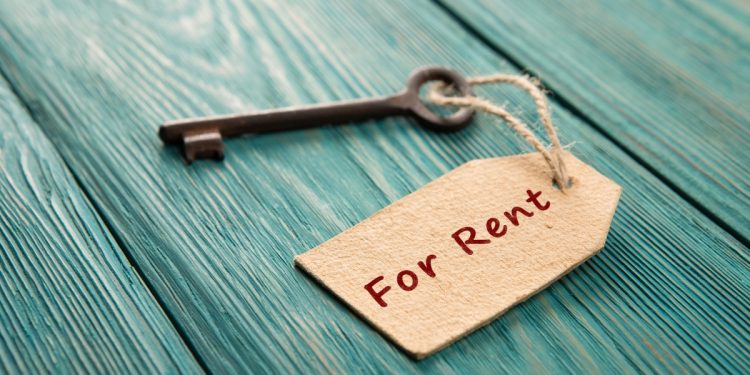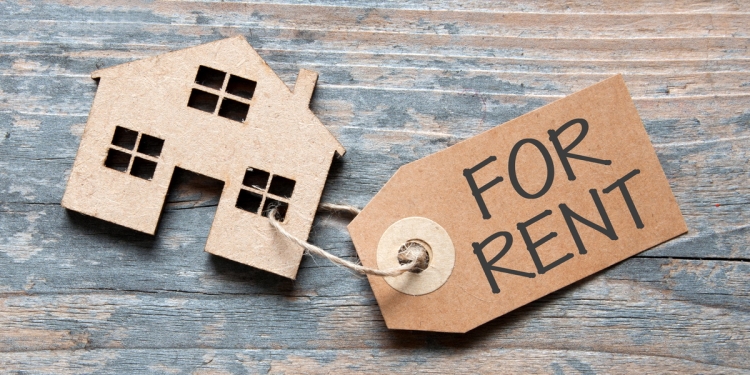One of the first things to consider when you come to Mexico to live —whether part-time, full-time or for a defined period— is finding a house to suit your lifestyle needs.
Most people begin their search for property online, and a cursory glance at the main property portals suggests that there are ~100,000 residential properties for rent in Mexico right now.
Searching the market for a rental property
With plenty of inventory to choose from, securing a rental should in theory be straightforward; but when you begin a search in earnest, you’ll discover the practicalities of securing an adequate rental home in an appropriate locale will present challenges and force you to make compromises.
A search for property in Mexico normally begins online. Realty agents and word-of-mouth are two other popular ways to find a home here. When you begin to search, you’ll find that while there’s lots of inventory, the quality and/or situation surrounding many homes offered for rental is not ideal.
Always visit a property before you agree to rent it
While online photos and videos are an excellent way to sift through potential properties and create a short-list of homes to consider in detail, it’s crucial you visit the property before you agree to rent: we recommend that you never sign or agree to a property rental contract at-distance, sight unseen. Always explore the locale and visit the property at least once before you agree to rent it.
Searching for Mexico home rentals online
Classified ads for property have proliferated in recent years through online sites that specialize in this market. The most popular sites to search properties and connect with owners or the agents representing them are Vivanuncios, InMuebles24, MetrosCubicos and Homie. These sites also help you to get an indication of rental prices in a given locale, which is helpful when you come to negotiate the rent.
Finding home rentals through local realty agents
Realty agents operate in every town and city and some can help you find a rental home in Mexico. Some agents are professionally established, others work informally and/or part-time. Agents’ fees emanate entirely from landlords paying them a commission; tenants do not pay any fees directly to the agent. The realty agents only earn a small fraction from property rentals in comparison to what they earn from property sales, and homes for rent are often represented by multiple agents all vying for a limited pool of potential renters. Experienced agents often won’t deal with rentals unless they sense that the people renting might eventually become buyers in the same locale.
Finding a rental by local word-of-mouth
If you’re already in Mexico, or have a friends or family network here, you might be able to find a rental by word-of-mouth. These can often work out to be the best arrangements as people renting decent houses prefer to have them rented through a personal referral. You usually end-up dealing directly with the landlord, who might or might not draw-up a formal contract. If you deal direct, we suggest you get agreements in writing, whether those are formal or informal, to avoid misunderstandings later.
Short term rental options in Mexico
If you’re searching for something short-term on the ‘turn-key’ basis, perhaps while you search for a long term rental, consider renting a serviced apartment, which are available for rent in Mexico’s larger towns and cities.
Serviced apartment rentals in Mexico
These are ideal for short visits, or when you need a ‘turnkey’ furnishing arrangement that includes phone and internet connections with self-catering facilities to avoid the higher cost of hotels and eating out every day. The rent usually includes all utilities and the services of a cleaner/housekeeper once a week.
There are lots of different companies offering serviced apartments. To find companies specializing in serviced apartments, go online and search for ‘serviced apartments in [location name]’ depending on where in Mexico you want to stay.
Room rentals in private homes
Another option for short-term rentals is to rent a room or annex in someone’s home, or a serviced bungalow. People renting rooms or other spaces (e.g. annexes, or bungalows) in their homes in Mexico advertise these on Airbnb, as well as Homestay and Tripping.
These accommodations are intended for shorter periods and can be useful when you need a place to stay to scout longer term options in Mexico with accommodation that is less expensive than a hotel or serviced apartment—and potentially more personable, too: the homeowner renting the room might also have local contacts who can help you find a longer term rental in Mexico, if that is your intention.
Housing types available for rent in Mexico
The selection of property types available depends where in Mexico you’re seeking a rental. The most common types of rental properties are apartments, condos, and houses on their own land within a residential neighborhood.
Apartments and condos
In Spanish, these are called departamentos and condominios. These are the two most common type of property for rent; some condos are classed as ‘condominios horizontales’ which are single or two-story homes joined together at the sides instead of being stacked. Condos and apartment blocks may also be part of gated communities.
Houses and family homes
Casas. These are usually family homes situated on their own plot of land, usually within a residential area or defined neighborhood of the town or city. They might face a public road; or they may be part of a fraccionamiento, that is a gated community; or be inside a cerrada or privada, that is a gated or private road.
Countryside properties
Some locations offer specialist or unusual homes, usually away from urbanized centers, although close enough to a significantly-sized town or city for access to services and amenities. Typically, these offer:
- rustic casitas, in essence, a rudimentary country cottage;
- bungalows, that can be on their own property, on a shared property with other bungalows, or shared within the grounds of a larger home; and
- country houses, that can range in size from 1-2 bedrooms, to larger estates with at least 3 or 4 bedrooms (and possibly more), ample reception areas (which may also include features like terraces and roof gardens) as well as extensive well-tended gardens; they might also have their own swimming pool.
Some countryside properties may be situated near or on a golf course, or overlook a lake or the ocean; others may be situated in quiet neighborhoods of a small village or town. These countryside property types are more often found tucked away in a rural idyll, a short (or long) drive away from the nearest town or city.
Rental costs in Mexico
Rents vary depending on the house type, location, seasonal demand, as well as other factors. Mexico has a range of property portals that list properties for rent (and purchase) in Mexico.
Beware of over-paying for rent
A common mistake made by inexperienced foreigners renting in Mexico is to overpay for rents based on their value perception of rents in their home country.
Homes in Mexico can rent for less because rents are typically aligned to local earnings. It’s worthwhile doing some local research —independent of agents’ and landlords’ say-so— to establish what homes are fetching in rent locally, to avoid overpaying. Most homes rent for 10-15% less than the quoted rental rate.
These are the principal sites to check when you’re scouting for a property and to gauge rental prices:
Housing: listings for long-term rentals in Mexico
Physical state of rental houses in Mexico
Mexico’s house rental market is diverse and the physical state of the property will vary tremendously—along with the fixtures, fittings, and other features of the home.
Condos and apartments offer modern convenience
Most people rent contemporary apartments and condos as these are the most convenient and well-appointed homes on the market: usually of recent build, they include a range of modern amenities, their fixtures and fittings are in good shape, and security and maintenance are taken care of when they are part of a gated community. (Note that gated community fees may or may not be included in the rent; you should check this to avoid surprises.)
Older properties with more character
If you’re seeking something less ‘boxy’ and more charismatic, you’ll find that older homes in traditional Mexican neighborhoods (perhaps rented by families who no longer occupy them) can offer charm but can also exhibit dilapidation with fixtures and fittings that are old, dated, and which may not be in full working order.
Property owners don’t tend to reinvest very much of the rent in these types of older properties, and are seldom willing to spend money on significant upgrades (they might simply not have the capital).
If you’re interested in the charms of a charismatic property that has dilapidations and is being offered for rent, you might ask if they are willing to invest in renovating key rooms of the house, or you might try offering a lower rent in lieu of dilapidated conditions, perhaps on the basis that you’ll undertake some minor repairs or some improvements to make it more comfortable for your stay.
Things to watch for when considering older properties include:
- State of the electricity supply. Old homes may have old electricity wiring and old breaker boxes: these can cause issues especially during the rain season when electricity supplies can fluctuate and older electrical installations might not protect your appliances.
- Kitchens and bathrooms: Some older homes or rustic casitas, even relatively expensive ones in desirable locations, may have old or makeshift kitchens (some ‘kitchens’ will have a basic sink and little else); and bathrooms may be old and outdated—functional but might exhibit drainage and other issues.
- Roof tiles and roof sealant: Most homes in Mexico have flat roofs with tiles on top, or have the concrete roof sealed to prevent water seeping through during heavy rainstorms. Check the state of the roofing when you visit the property and if it looks worn or weathered, ask questions about when it was last sealed, or when the tiles were cleaned/cleared of mold, moss and debris.
- Corrugated roofing: Some roofing and side awnings (for example, for laundry areas) present on older properties are created using corrugated roofing: metal or fiberglass are popular; roofing in very old properties might be asbestos. Take note that corrugated roofing is very noisy during heavy rain storms that are prevalent in many regions across Mexico between May and October.
Luxury home rental market in Mexico
Luxury homes, and brand-new properties being rented for first-occupier use are available in many locations and will usually be presented in excellent shape, but the rents for these are considerably higher.
These homes offer comfort, convenience, modern amenities, and some offer a ‘turn key’ solution with furnishings and other homewares in place, ready for you to move in and live with a minimum effort.
Some luxury rentals also offer ‘all inclusive’ utilities (often with exception of electricity that is charged extra), although in these cases the utilities are managed on your behalf, so there’s no need for you to call the telephone and other utility companies to arrange and manage your service supply, as this is taken care of for you.
If you are on a limited budget, you might consider the advantages of renting a less expensive house that you can spend some money ‘making comfortable’ for yourself, and that will work out less expensive if you intend to rent longer term.
Services and utilities available at the house
Check to see what services and utilities are available at the house you intend to rent before you pay a deposit or sign a contract.
Electricity and gas supply
Virtually all homes for rent in Mexico, except those in very rural or secluded areas, will have electricity and most will have a natural gas tank to heat water and for cooking.
Check the source of water supply
Water supply will depend on where the property is situated: in urban areas this will usually be via mains water feed; in outlying and rural areas this might be from a local well, or you might have to take water deliveries from a truck—check this with the agent or landlord before you agree to rent. Drainage will either be via mains sewerage in urban areas, or a self-regulating septic tank system in rural areas.
Telephone and internet services
Internet services are widely available in urban areas but cross-check this if the house is situated in a (semi)rural area, or in a new or recently developed area. If there are no telephone or cable lines available, wireless home internet service might be available.
Gardens, maintenance, and security in a rental home
When you take on a rental house in Mexico, you’ll need to consider how you will take care of the property to ensure your deposit is returned.
Large gardens offer attractive outdoor spaces which are ideal in Mexico’s agreeable climates, although they do require time, effort or money (to pay a gardener) to look after. Reasonable wear-and-tear is accepted in the home, but you’ll have to make-good any damages, plug-holes in walls and cover marks when you leave.
If the rental property is not situated inside a gated community, you may need to take extra measures to defend against burglary.
Download and read our free eBook about home maintenance and security for details.
Renting a house with pets in Mexico
If you have pets, particularly dogs, your choice of available rental properties will be more limited in Mexico. Many property owners here explicitly forbid pets on the property as part of the rental contract, usually due to potential damage pets may cause as well as the issue of having to clean the property afterwards.
If the property you intend to rent is a house on its own with a garden, there is a higher likelihood that pets will be accepted. Homes inside gated communities and condo buildings tend to be the most restrictive. (Often the restrictions are due to covenants associated with the building itself; for example, pets may be banned from certain condos.)
If you have one cat, you might be able to persuade an owner who otherwise does not allow pets to let you rent. In any event, if pets are allowed, you might be asked to pay additional damage and cleaning deposits when you move in.
If you are using the services of a real estate agent to find a rental property, then be up-front about having pets from the start to prevent you both from wasting time scouting for and reviewing properties that will not allow pets.
Dealing with house-related issues while renting
Appliances included in the rent may fail, fixtures and fittings may break, and events like electrical storms, hurricanes and earthquakes can cause significant issues to arise that you’ll need to deal with.
If the home you are renting requires some improvement or repair and you want to do this yourself, the landlord might negotiate to have specific work undertaken in lieu of rent —in Spanish this is termed as ‘a cuenta de renta’— and we suggest you get any agreement for proposed works in writing before committing to the expense.
For more serious issues caused by floods, storm damage, or earthquakes, you’ll need to deal with the landlord on a per-case basis. In the event of a force majeure, the landlord will need to make-good any structural matters, but your personal goods are your own responsibility.
Home insurance for renters
You can protect your own personal furnishings and items for loss caused by burglary, storms, and earthquakes by purchasing a renter’s home insurance coverage—these are less expensive as they only cover the tenant’s belongings, not the structure of the property.
End of rental term, checking-out, and deposits
Review your contract to determine when you need to start renegotiating the rental agreement, the rent to be paid, and any notice you need to give to the landlord before you vacate the property.
Provided that the house is returned in the good order —allowing for domestic wear-and-tear— your deposit should be returned to you. Some agents provide an ‘escrow’ service between the landlord and tenant in regard to rental deposits; but this is not very common in Mexico and your deposit is often paid directly to the landlord on trust of its return. Some landlords will accept the last month(s) of rent in lieu of the deposit they hold.
Renting versus buying in Mexico
We recommend that people moving to Mexico rent first before buying—unless you have good prior knowledge and experience of the area and feel confident that you want to live there.
Some people come to Mexico and rent a home for many years through a long-term and stable contract. However, rental contracts are often subject to unforeseen termination: two common reasons include a family member needing use of the property, or the owner or family deciding to sell it.
Renting almost always requires compromises to be made
Whatever rental home you find in Mexico, it’s unlikely to deliver everything you want; and any improvements you make will remain with the house when you leave—whether or not the landlord paid for them in lieu of rent. If you’re in Mexico for the long-haul, you’ll need to buy a home here to get the property you really want, benefit from any improvements you make to it, and have the peace of mind to know that a landlord’s whim or personal circumstances won’t force you to move.
Learn more about property rentals in Mexico
We publish extensive local knowledge about real estate and property rental to help you find a suitable home for rent in Mexico:
- Finding suitable accommodations for your lifestyle in Mexico
- Finding and managing your property rental in Mexico
- Latest articles about property rental in Mexico
Mexico in your inbox
Our free newsletter about Mexico brings you a monthly round-up of recently published stories and opportunities, as well as gems from our archives.









Are there any general practices or laws governing the inspection of rental properties by owner or property manager during the duration of the rental such as scheduled inspection date/time, disclosure of findings, renter present during inspection, opportunity for renter to remedy any negative findings, etc?
Hi Sami, there is nothing inscribed in law that we know of, although matters related to the terms concerning scheduled/regular inspections, and discussions about faults and delapidations (and remedies) are usually included in clauses of the rental contract. Some contracts include photographs that show the state of the property on the day it was rented, for reference. Desposits are usually held by the owner and returned at their sole discretion; the only remedy is to seek a legal injuction, but that is often more expensive than the sum of the deposit.
You can get full details about renting in property in our free eBook: Guide to Real Estate in Mexico:
https://www.mexperience.com/ebook/guide-to-real-estate-in-mexico/
And prices and contract details in our free guide to the Cost of Living in Mexico:
https://www.mexperience.com/the-theory-and-practice-of-renting-a-house-in-mexico/#comments